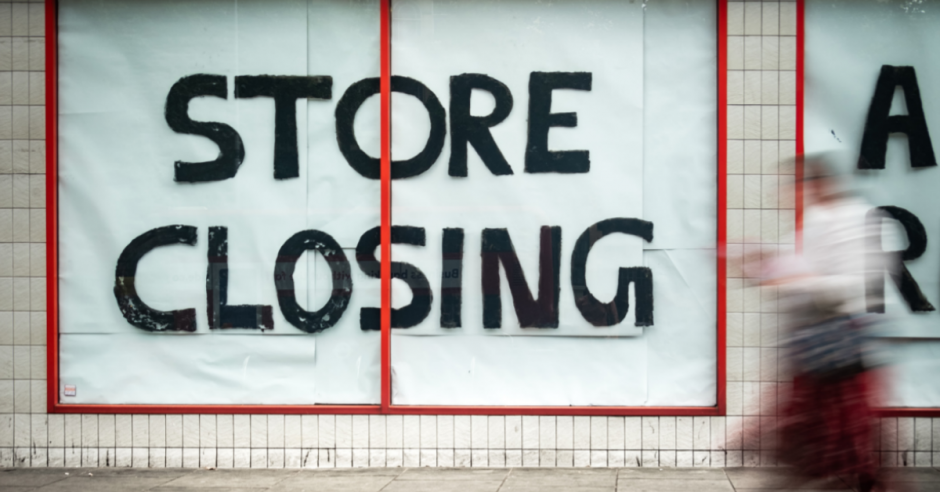The Co-operative Party conference weekend, held over 9 and 10 October, offered interactive debates and workshops held via Zoom alongside the main conference (full report here).
Participants came together to discuss the Co-operative Party’s campaigns and policies around high streets, social care, climate change and public broadcasting.
Policy Debate: High Streets

Discussions in this session focused on the party’s 2021 policy paper on high streets, which calls for great transparency around the ownership of high street properties, increased support and funding for communities to take ownership of their high streets and more accessible and democratically controlled high streets that include workplaces and affordable housing as well as retail units.
The session heard from Power to Change CEO Vidyha Alakeson who highlighted the fragmented and remote ownership of high street properties as contributing to the problems faced by town centres, and called for the development of a buyout fund to increase community access to capital, enabling groups to “swoop in” to buy failing high street businesses, as well as a Community Right to Buy as currently exists in Scotland.
The session also heard from a number of community-owned co-ops across the country, including multi-stakeholder co-op Kitty’s Launderette in Liverpool, collective workspace Portland Works in Sheffield and Nudge Community Builders, who run three community spaces on Union Street in Plymouth.
Policy Debate: Social care

This discussion centred around the party’s 2021 policy paper on social care, which proposes a new model of care, “that uses the principles of co-operation to build on the first-hand knowledge of those who rely on, receive and provide care”.
The session heard from care providers who are paving the way for this kind of change, including multi-stakeholder co-operative Colne Valley Care Co-op and the UK’s largest employee-owned care provider, Be Caring.
Veronika Susedkova from Colne Valley spoke about the challenges of a “culture of low expectations” within the current social care system, and the difficulties of innovating in a sector that often relies on rigid hierarchy to minimise risk.
Laura Mwamba from Be Caring said that in order to respond to the challenges in social care, there needs to be a shift from an hourly wage to a salary for care workers, so that staff can be be more involved in decision making as part of their role: “When you pay your carers fully, pay them properly, give them good terms and conditions, you can start to make some of the other changes, you can start to change the culture. You can start to set good expectations.”
Campaigning workshop: Protecting Public Broadcasters

Participants gathered on Zoom for this workshop focusing on how public service broadcasting can be protected, particularly with regards to the proposed privatisation of Channel 4, which the Co-operative Party is campaigning against.
In the session, Co-operatives UK CEO Rose Marley opposed the proposed changes to the Channel 4 model but said that if the government is committed to “selling off the last of the family silver” she would rather see it protected by mutual ownership, saying: “I am not aware of any mainstream mutually owned broadcaster so this would be a real game changer actually for the media and for TV – an internationally known, £1 billion turnover co-op, it could be amazing.”
Rebecca Harvey, executive editor of Co-operative News, spoke about the need for diversity in the media, saying that the media in private hands has the potential to become a “self-perpetuating behemoth” which can harm society. “There is in my view no better opportunity than cooperative ownership for [Channel 4’s] potential future,” said Harvey.
Campaigning workshop: climate change

This session’s topic was chosen by party members and featured conversations about how co-ops can be part of community-level change to tackle the global issue of climate change.
Participants spoke with the Carbon Co-op, who recently launched a community share offer for their People Powered Retrofit project, a Community Benefit Society aimed at helping households source reliable retrofit services in Greater Manchester. Carbon Co-op also spoke during the session about the need to reach beyond the “usual suspects” when working with communities around energy transition, which they are aiming to do in their Oldham Energy Futures project, which will work with with two neighbourhoods in Oldham to co-produce local energy action plans and pilot projects around local heat, power and transport.
Also contributing to the session was Leo Murray from climate action charity Possible. Murray made the case for focusing efforts around climate change at the “meso-scale” – the space in between the individual or household level and the regional, national or international level. In this space, Murray argued, individuals can take collective action that can realistically achieve meaningful results, and it is also the space where co-operatives most commonly operate.

